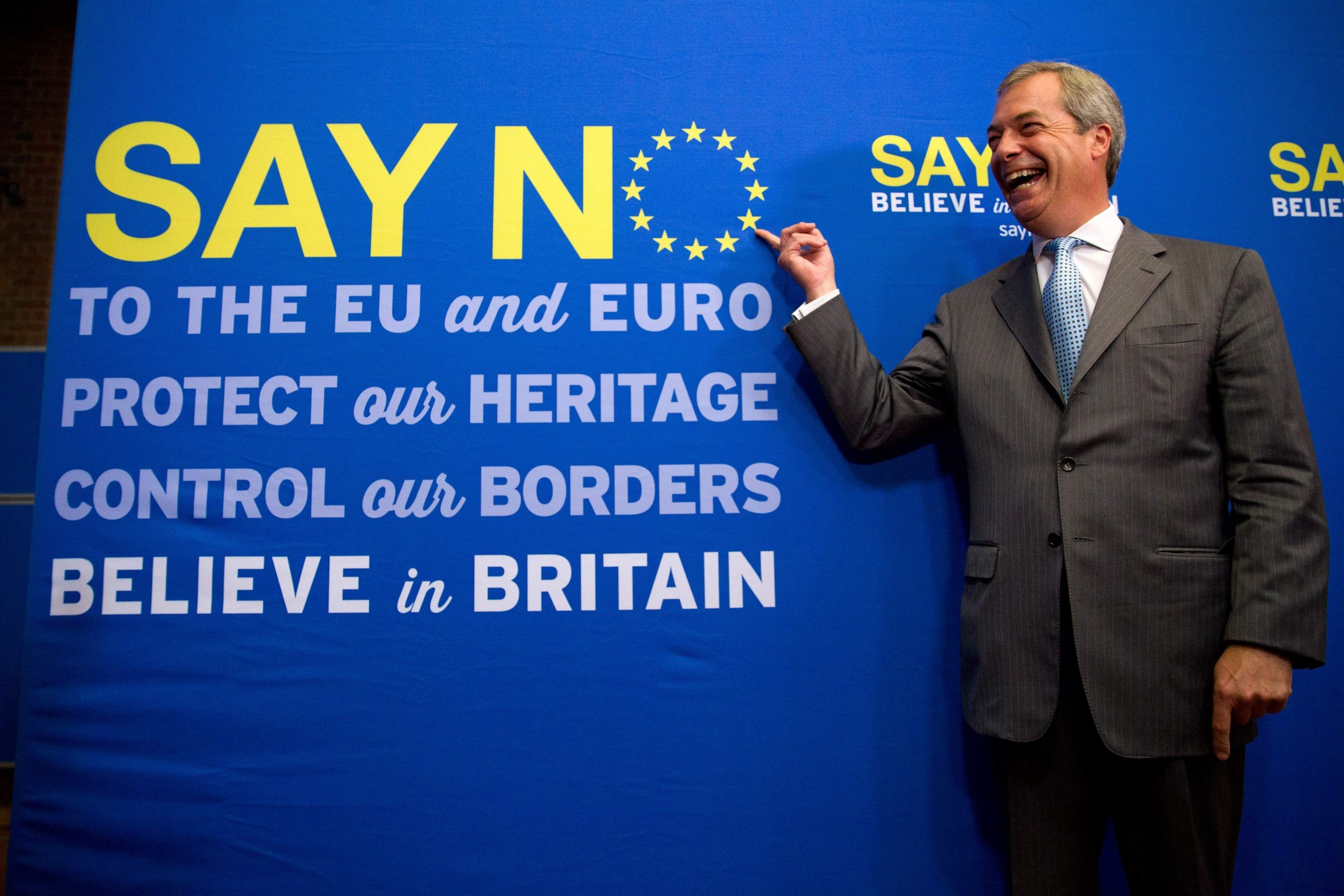
On the morning of 8 May Nigel Farage called a press conference at the Botany Bay Hotel on the cliffs of Kent. He was announcing his resignation as leader of the UK Independence Party. A few hours earlier he had failed to win in Thanet South, and he had repeatedly said he would resign if he did not become an MP. “I have never ever broken my word before,” he told journalists, “so I am very unlikely to start now.”
The promise lasted barely 72 hours. On the Monday after the general election, it was announced that Ukip’s National Executive Committee had unanimously rejected his resignation. In Following Farage, the journalist Owen Bennett explains what would have awaited Farage if he had made good his pledge – life as “an absent father; a big-time drinker whose friends were now on mineral water; a seven times failed parliamentary candidate”.
The book claims to focus on Farage, but it offers more valuable insights into those in his inner circle, who form a changing cast. Few will have heard of many of these, yet it is they who allow Farage to exercise the overwhelming power he does in the party. There are the multimillionaires who bankroll Ukip and are fiercely loyal to its leader. Richard Desmond hasn’t given Daily Express staff a cost-of-living pay rise for seven years, but donated £1m to Ukip. Arron Banks promised Ukip £100,000, was called a nobody by William Hague and was so pricked that he promptly gave £1m instead. Most amenable to Bennett – though that’s not saying much – is the octogenarian spread-betting tycoon Stuart Wheeler, who has a “class” and “decency” the others lack.
Then there are the loyal minions. Annabelle Fuller started working for Farage at 22 and became his “gatekeeper”, until an MEP used parliamentary privilege to accuse him of having an affair with her. Three months later, Fuller turned up at a party to celebrate Ukip’s victory in the European Parliament elections, claiming Farage had invited her. His wife, Kirsten, promptly demanded that she leave. Fuller, who had suffered from depression, tried to take her own life, taking an overdose and slitting her wrists. Over lunch a fortnight later, she told Bennett that she felt like “Nigel’s mother” (though she is 18 years younger than he is). One is left feeling sorry for the way she was written out of history. Farage’s first autobiography credited her “perceptiveness and goodwill”; his latest did not mention her at all.
Perhaps the most intriguing figure in the book is Ukip’s strategist Raheem Kassam, adviser on “shock and awful” tactics for the party’s election campaign. Like many in British politics, Kassam was obsessed with America, but few others derive inspiration from the Tea Party. After Farage raised the issue of migrants with HIV in the leaders’ debate on TV, he briefed journalists that the move was part of its shock-and-awe strategy. To Douglas Carswell, now Ukip’s sole MP, it was “simply awful”.
Unlike Robert Ford and Matthew Goodwin’s 2014 book, Revolt on the Right, Following Farage does not amount to a serious analysis of the causes of Ukip’s success, but nor does it claim to be. Based on Bennett’s two years of reporting on Ukip – for the Hertfordshire Mercury, the Daily Express and the Daily Mirror – it sets out to give “an idea of what it is like to report on, drink with, laugh at, and even, at times, defend the People’s Army”. In that, it succeeds: the description of the protesters at Ukip’s conference who labelled the party “racist” but couldn’t explain why is especially telling.
Not that the book is without faults. So much has been written about Farage, not least by himself, that revelations are elusive here, though we learn that he identifies as “a happy drinker, not a sad drinker” – and of an American fan who offered him cocaine and “my girl Luscious”, but was politely turned down. Perhaps reflecting the pressure in getting the work published so soon after the election defeat, Bennett occasionally slips into cliché. And some of his attempts at self-effacement feel a little overdone. Taking a selfie with Farage, Bennett berates himself for his “I’m-having-a-drink-with-the-leader-of-a-political-party-because-I’m-a-reporter-for-a-national-newspaper-so-I-must-be-very-important-and-wonderful-look-at-me-Mummy-I’m-doing-so-fucking-well-for-myself vibe”.
Still, this is a timely and entertaining story of a man addicted to applause, not alcohol. Stepping down for good would have made for a neater end, but, as Bennett concludes: “[L]eaving him in his smoke-filled office to deal with an internal power struggle of his own making is a far more appropriate way to stop following Farage.”
Following Farage: On the Trail of the People’s Army is out now from Biteback (£12.99)
Editor, 27 August 2015: This review has been amended to reflect Raheem Kassam’s position in Ukip’s 2015 election team and Douglas Carswell’s current role in the party



